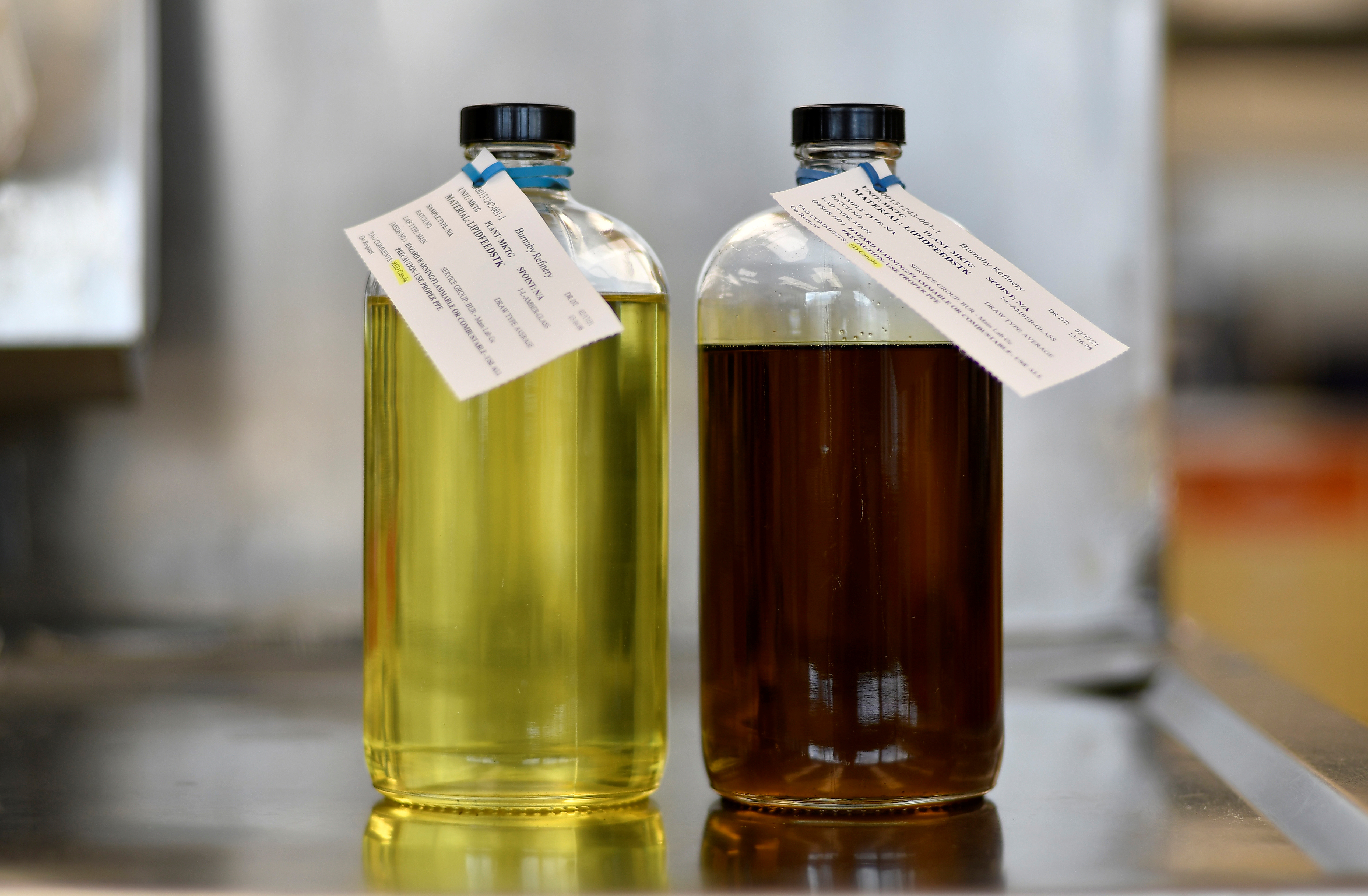In the world of alternative fuels, biodiesel and cooking oil play significant roles. While both are derived from plant or animal sources, there are distinct differences between the two.

Credit: www.reuters.com
What is Biodiesel?
Biodiesel is a renewable fuel that can be produced from various sources such as vegetable oils, animal fats, or recycled restaurant greases. It is created through a process called transesterification, where the oil or fat is reacted with an alcohol to produce biodiesel and glycerin.
Characteristics of Biodiesel
- Biodiesel is a cleaner-burning alternative to traditional diesel fuel.
- It is biodegradable and non-toxic.
- Biodiesel can be used in diesel engines without any modifications.
- It has lower emissions of greenhouse gases compared to conventional diesel.
- Biodiesel has a higher cetane number, which improves combustion efficiency.
What is Cooking Oil?
Cooking oil, on the other hand, is primarily used for culinary purposes in frying, baking, and cooking. It is derived from plant sources such as soybean, canola, or sunflower seeds, and animal fats like lard or tallow.
Differences between Biodiesel and Cooking Oil
| Aspect | Biodiesel | Cooking Oil |
|---|---|---|
| Production Process | Transesterification | Culinary Use |
| Usage | Vehicle Fuel | Cooking Ingredient |
| Environmental Impact | Lower emissions | Not designed for combustion |
| Compatibility | Compatible with diesel engines | Not suitable for engine use |

Credit: www.sciencedirect.com
Can You Use Cooking Oil in a Diesel Car?
Diesel engines can run on straight vegetable oil for short-term operation, but it is not recommended for long-term use. The properties of cooking oil are not optimized for engine combustion, which can lead to performance and durability issues over time.
Benefits of Biodiesel over Cooking Oil
- Biodiesel is specifically formulated for engine use, ensuring optimal performance.
- It has undergone the transesterification process, making it suitable for combustion.
- Biodiesel has lower emissions and is more environmentally friendly.
- Cooking oil lacks the necessary properties for efficient engine operation.
Frequently Asked Questions
Can I Use Cooking Oil In My Diesel Car?
Yes, you can use cooking oil in your diesel car for short-term operation, but it may cause long-term issues. Straight vegetable oil is not recommended for continuous vehicle use.
What Are The Disadvantages Of Biodiesel?
Biodiesel has a few disadvantages. It can cause engine performance issues and durability problems when used for long-term vehicle operation. It also has a higher gel point, which means it can solidify in cold temperatures. Additionally, the production of biodiesel requires large amounts of land and water resources.
Why Is Biodiesel Better Than Oil?
Biodiesel is better than oil because it offers better engine performance. It has lower emissions and a lower boiling point compared to regular oil. Biodiesel is made from vegetable or animal fats and is functionally identical to petroleum diesel. It is a more environmentally friendly and sustainable option for fuel.
Can You Eat Biodiesel?
No, you should not eat biodiesel. It is not safe for consumption. Biodiesel is meant for use as a fuel, not for eating.
Conclusion
While both biodiesel and cooking oil originate from plant or animal sources, their intended purposes and properties differ significantly. Biodiesel is a sustainable fuel alternative that is designed for engine use, whereas cooking oil is meant for culinary applications. Understanding the distinctions between the two can help in making informed decisions regarding their respective uses.


